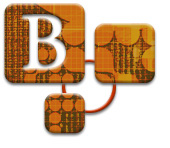| |
 Topic
B2.2: Orienting Students to Online Technologies Topic
B2.2: Orienting Students to Online Technologies
Defining Online Technologies
For the purpose of Topic B2, technology requirements
are separated into two categories: hardware and software. The tangible
parts of a computer, such as the monitor, mouse, keyboard, printer,
and modem are called hardware. The application programs that enable
the computer do its job — Microsoft® Word®, Excel®,
and a web browser such as Netscape® — are called software.
Addressing Hardware Requirements
Questions about Hardware requirements to be
addressed when instructors are planning and teaching an online course
are as follows:
- Will the student need a computer or will it be
provided?
- What Internet connection speed will students need
to participate in the course: 33.6 kbps, 56 kbps, or a broad-band connection
such as a cable modem or satellite downlink?
- Will the student need a printer?
- Will the student need a fax machine?
- Are these requirements clearly and prominently
published on the provider’s (college’s) web site, as well
as on the course home page?
Addressing Software Requirements
Questions about Software requirements that need to be considered include:
- What version of a web browser (Netscape 4.7, Netscape
6, Internet Explorer 5.5) will be needed and work for the type of course?
- What must the browser be able to do for the course
to work? For example, should the settings be set so that Java scripts
and cookies are “enabled”?
- What plug-ins are needed, such as Flash, Realplayer,
Beatnik, Adobe Acrobat Reader, QuickTime, or others?
- What application programs are necessary? For example,
does the course require a specific word processor or graphics package,
such as Microsoft Word or Macromedia Director? And what version of
the software is required?
- Will the student need a specific e-mail program?
- Does the course employ a course management system,
such as Blackboard, WebCT, or another integrated course system?
Since software using the Internet is constantly changing,
some parts of an online course may not work with either older versions
or the very newest version of a program, or with a specific version of
a browser. The reason is that software makers and web developers often
decide that either the software is too old to bother with making it compatible,
or it is so new they have yet had the time or resources to make it compatible.
And if the course has any secure login system, the web browser will most
likely need to accept cookies, use DHTML, and possibly some form of encryption.
 
TOP
|